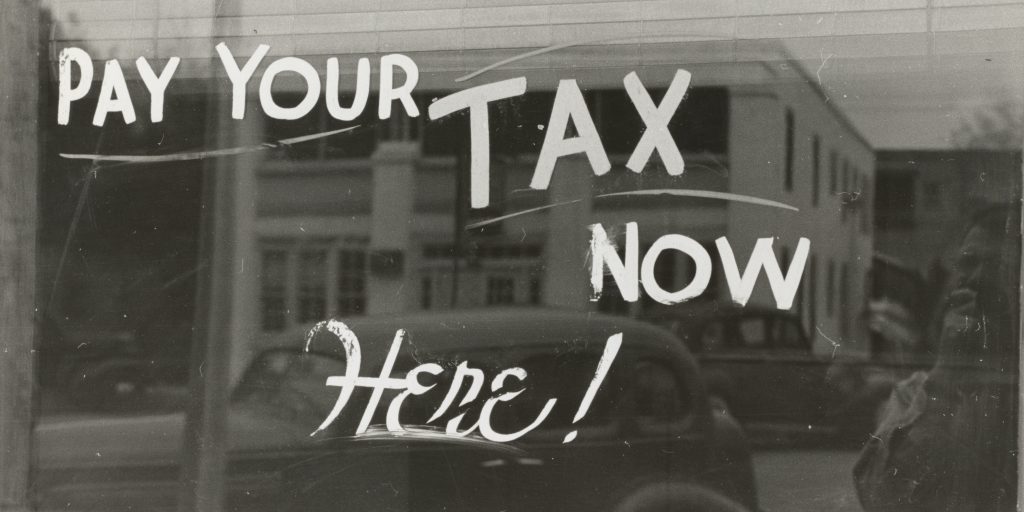As communities grapple with budget shortfalls, how will taxation change?
The financial strain of COVID-19 can be felt across nearly every industry, with state governments facing massive budget shortfalls as the economic shutdown puts a damper on taxes – their main revenue source. With stay-at-home orders and fewer consumers out spending money, many states have seen a significant drop-off in sales tax revenues. Couple the reduction in sales taxes with deferred income tax payments until July and many states are in a precarious financial situation.
According to the Center on Budget and Policy Priorities, states are expected to run a $105 billion deficit, collectively, for the 2020 fiscal year. Many states are currently identifying ways to stretch their budgets as far as possible by starting to look at their rainy-day funds and identifying services that can be cut with the hopes of pending federal aid. However, with the economic recovery likely to be slow, it’s likely that tax collection from tourism and excise industries will likely not bounce back immediately. Still, the reality is that tax collection and enforcement will inevitably have to ramp back up and potentially expand to recover.
While taxing authorities must approach taxation carefully during a time of economic uncertainty, there are a few options that states have to start recouping lost revenue by diversifying what they tax and how things are taxed.
Online transaction taxes
More than 40 states and the District of Columbia have implemented economic nexus laws that allow the collection of sales tax on online transactions as a result of the 2018 South Dakota v. Wayfair Supreme Court decision. Under these new laws, states require online sellers to pay sales tax on sales made to customers in their states, regardless of whether the business has a physical presence in the state.
Due to social distancing measures and businesses closures, more consumers have taken to online shopping to purchase necessities and discretionary items. In fact, Avalara’s customer data found that businesses selling online experienced an increase in customer traffic, while those without online selling capabilities did not. For states with economic nexus laws already in place, they could already be benefitting from a more consistent flow of sales taxes despite the decline in physical retail sales. While many states have their thresholds set at $100,000 for economic nexus obligations, we could see some states look at lowering those thresholds to expand their revenue intake from online sales until physical sales bounce back.
Similarly, with more consumers shopping online, states stand to benefit from an increase in online marketplace sales. More than 40 states have marketplace facilitator laws in place, which allows them to enforce the collection of sales tax of third-party remote sales from the marketplace itself. With store shelves going empty and restricted customer volume in stores, online marketplaces have become a go-to choice for consumers during COVID-19.
Digital taxes
While a global agreement on a digital tax plan will likely not come to fruition until 2021, the concept of taxing digital goods and services in the U.S. has been top of mind for many taxing authorities in recent years. While it is highly unlikely that wholly new tax revenue sources will be stood up during a global pandemic, there are many states that could generate significant tax collections by taxing an industry that is thriving at this time.
With more people at home, the demand for streaming services, online marketplaces, and overall screen time has exploded. While everyday businesses like gyms and movie theaters are closed, people are still engaging with those industries digitally. In fact, digital streaming of movies and TV shows grew by 32 percent in March. Additionally, with more people online, more are being exposed to digital advertising across multiple platforms and devices throughout the day.
States like Maryland and Nebraska have previously introduced legislation that aimed at taxing digital advertising seen by their residents, but their efforts have been met with opposition and other hurdles that must first be taken care of. While there are a number of legal and infrastructure challenges that must be addressed before new digital taxes can be implemented, states might be inclined to look into the digital services that aren’t currently taxed to close their gaps.
While the financial impact of COVID-19 is unlike any other time in our history, state governments can lean on the lessons learned during past recessions to navigate the current situation. Budget cuts and the use of rainy-day funds will serve as the first line of defense for state budgets, but leaders will eventually need to turn to taxation. As society slowly resumes normal operations, states will likely begin looking at alternative ways to capture sales tax revenue in the interim.
Scott Peterson is the VP of U.S. tax policy at Avalara





















Wow